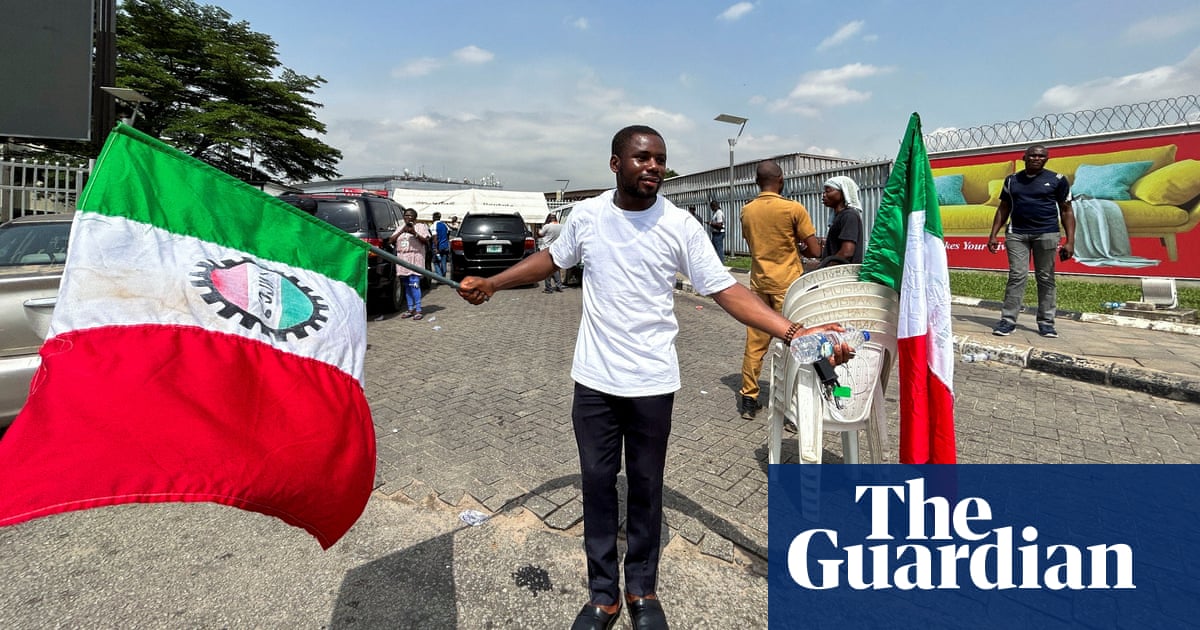Nigeria’s main labour unions have shut down the national grid, disrupted airline operations and blocked the gates to parliament as they began an indefinite strike over the government’s failure to agree a minimum wage.
A minimum wage of N30,000 (£15) a month, agreed in 2019, expired this April. The unions are asking for an increase to N494,000 (£257).
Monday’s strike is the fourth by the Nigeria Labour Congress (NLC) and the Trade Union Congress (TUC), the country’s two biggest unions, since President Bola Tinubu took office in May 2023.
The Transmission Company of Nigeria (TCN) said union members drove away operators at the country’s power control rooms and shut down at least six substations, which eventually shut the national grid at 2.19am (01.19 GMT). As of Monday afternoon, the power grid was still down.
The Daily Trust local paper reported that the NLC affiliate within the national legislature cut the power and water supplies to both houses of parliament. There were also reports of banks and hospitals being closed in a number of states.
The Nigerian airline Ibom Air said it was suspending flights until further notice due to the strike, while another, United Nigeria, said airports across the country had been shut down and striking workers had not permitted any of its flights to operate.
Electricity and aviation unions said on Monday they had directed their workers to withdraw their services in compliance with the indefinite strike.
“It’s saddening that Labour could go to this extreme but it is not surprising to the perceptive minds,” the presidential spokesperson, Bayo Onanuga, said on X. “Labour is harming the Nigerian people they claim to be fighting for … what is clear is that the issue they claim to be fighting for cannot be resolved by blackmail or sabotage.”
Since taking office, Tinubu has announced a series of reforms, which have fuelled a rise in inflation to an almost 30-year high and worsened a cost of living crisis in Africa’s most populous country. He has been under pressure from unions to offer relief to households and small businesses after scrapping subsidies on petrol, which kept fuel cheap but cost the government $10bn (£7.9bn) last year.
The unions declared an indefinite strike on Friday after talks for a new minimum wage meant to cushion the impact of reforms collapsed. They said the strike would last until a new minimum wage was in place.
“Since we undertook the nationwide protest against the recent hike in electricity tariffs, no government official has called us for discussion,” the TUC president, Festus Osifo, was quoted as saying on Friday. “Even the minister of power has not thought it fit to invite us for discussion.”
The TCN said it was making efforts to recover and stabilise the national grid but unions were obstructing grid recovery nationwide.
Unions have also demanded a reversal of a rise in the electricity tariff introduced last month for better-off consumers who use the most power, as the government tries to wean the economy off subsidies.
On Thursday, Nigeria’s privatisation body said the country had secured a World Bank loan of $500m for its electricity sector.

